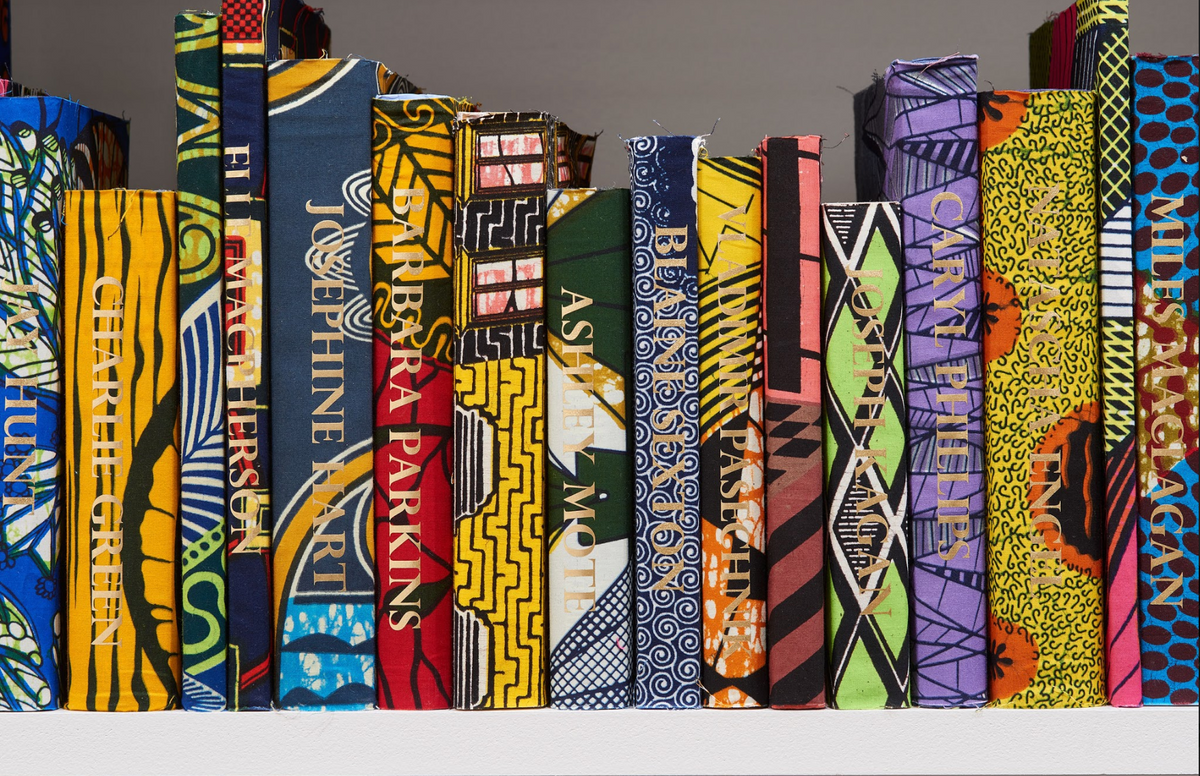Installation Sparks Conversations on Diversity and Immigration

The Mead Art Museum’s new installation showcases three works by Yinka Shonibare MBE, a British-Nigerian artist. This is the fourth installation of the “Rotherwas Project,” which displays contemporary art in the Rotherwas Room of the Mead. The Rotherwas Room was originally installed in Herefordshire, England as part of the Rotherwas Court’s estate, dating back to the year 1611, when it was commissioned by Sir Roger Bodenham. The room was reconstructed at Amherst, and the Mead Art Museum was built around it in 1948. This historic oak-paneled room now houses contemporary art installations, contrasting the old and antique with the new and modern.
The Mead director and chief curator selects “contemporary artists to be in conversation with this 17th century room.” This installation is comprised of three works by Shonibare, who is famous for his art across a range of mediums that explores colonialism, identity and globalization. He is known for his use of Dutch wax printed fabric in bright African patterns.
The fabric itself is an example of the effects of colonialism and globalization, fusing European production with African design. Jocelyn Edens, Interim Assistant Museum Educator, noted that “the fabric that is often understood as a symbol of authentic African culture, actually calls into question the notion of authenticity because of the way it is designed, produced and sold.”
These fabrics decorate the “The American Library Collection (Activists),” a work created by Shonibare that the Mead purchased to be a permanent part of the museum, while the other two works are on loan. This work is a shelf of fabric-covered books, with the name of an activist printed on each spine. “Their activism is informed by their status as an immigrant,” Edens said.
Many of the names belong to first- or second-generation immigrants and others belong to those who have spoken out against immigrants and diversity. Edens said, “By grouping activists with disparate beliefs into this one library, Shonibare puts them in conversation with each other.” The Mead seeks to inspire such conversation at Amherst. In fact, to celebrate the opening, the museum hosted a panel of faculty to discuss the themes of the exhibition, including the way colonialism has affected our world.
The installation seeks to facilitate further conversation by posing questions like those posted on an exhibit sign: “What does it mean for this work to be exhibited in a British knight’s parlor? What stories are told by the movement or migration of the artifacts and art in this room?” and inviting visitors to respond in notebooks on a library cart opposite the installation.
The other two Shonibare works on display at the Mead are “Girl Balancing Knowledge” and “Nelson’s Ship in a Bottle,” both incorporating the wax printed fabric he is known for. “Girl Balancing Knowledge” is a sculpture of a girl with a globe for a head, precariously balancing a tall stack of books on her foot.
For Mead public programming specialist Danielle Amodeo, this work is a reminder that “history, art history, anything we call a canon is actually very slippery because it depends on the narrator. You have to question who is telling the story and why.” “Nelson’s Ship in a Bottle” is a replica of the HM Victory from the Royal Navy in 1758, complete with 27 sails in Shonibare’s signature fabric.
Amodeo emphasized that the Mead chose these works by Shonibare for the fourth Rotherwas installation because Shonibare’s works come from an “artist that brings underrepresented perspectives to the fore[front].” Through the installation, and the purchase of “The American Library Collection,” the Mead invites Amherst to think about the history of colonialism, cultural identity and modern globalization. For those wishing to learn more about the installation, David Little, director and chief curator of the Mead Art Museum, will be leading a gallery talk to discuss “The American Library Collection (Activists)” in detail on Tuesday, Dec. 11 at noon.





Comments ()